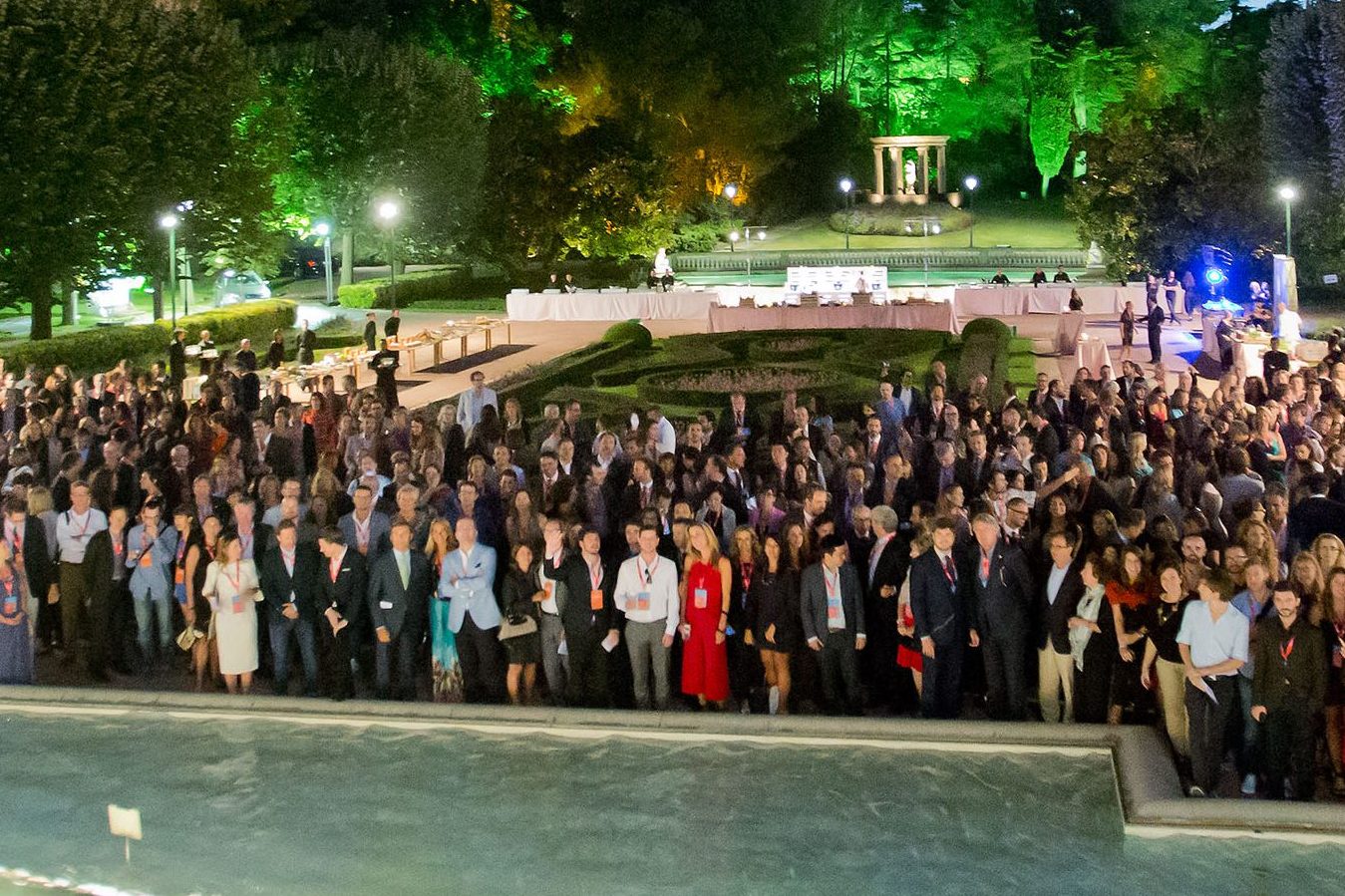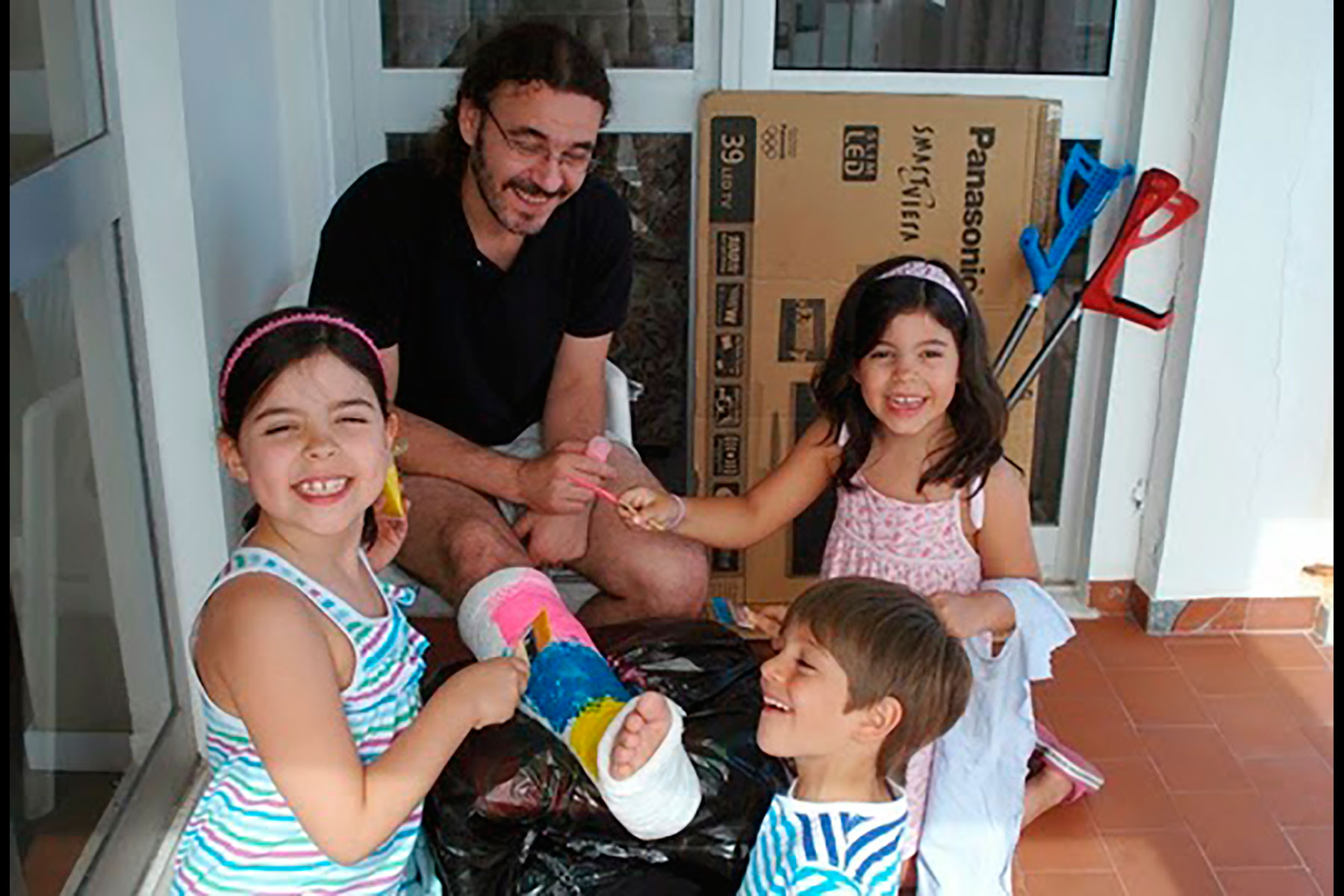Tag: Commonsense
The Golden Rule is Making the World Worse


—
The Golden Rule — treat others as you would like others to treat you — is well intentioned in that it asks us to extend fairness and respect to others. But the outcomes are not necessarily good.
—
The problem is that it is based on a fundamentally flawed assumption.
—
The assumption that you want what I want, that fairness and respect mean for you what they mean for me. And this is rarely true. This is particularly relevant given the evils caused by the racism and the violence we’re seeing these days.
It is so easy to fall into the trap of assuming my way is the right way, and then to treat others as I think I should, without taking into account what they want. This is dangerous because it can make them feel disrespected and I might end up resenting the fact that they are being unappreciative of my efforts.
And we don’t have to go halfway across the world to make a difference. This applies to how we treat people at work, at home, on the streets, and in social media. Lest we come across as jerks, we want to be careful NOT to treat others like we would like them to treat us, unless we’re sure that is what they really want.
—
Never assume you know what others want. The alternative is to practice empathy.
—
The golden art of putting ourselves in their shoes to figure out how they would like to be treated. And we will probably be surprised by how much that can differ from what we expected to be appropriate.
If we are going to build a more fair, generous and compassionate world, we’re going to need a better rule. Here’s an iteration:
—
THE GOLDEN RULE 2.0
Treat others as THEY would like to be treated.
—
#BlackLivesMatter
How to Leave A First Good Impression

Darrell is a polite, handsome man, who had little luck meeting people and making friends. He didn’t get why and it was frustrating. I first met Darrell during his final months in prison — a few of robberies and a bad temper had got him into trouble.
But Darrell is one of the few who manage to overcome the nasty effects of jail time. He decided to change. And he did. What didn’t change was the way people reacted to him. It seemed as though everyone knew his past. Then he figured out why.
And it had nothing to do with his past.
.
People won’t figure out your past by looking at you.
But they’ll read your present in just a glance.
People won’t figure out your past by looking at you.But they’ll read your present in just a glance.It was actually quite obvious and he felt stupid for not figuring it out earlier. Back in the day, Darrell had the side of his neck tattooed with the universal “F*** YOU”. It was small but nonetheless LOUD!
He had it for so long, he no longer noticed it — Gosh, I no longer noticed it and I hadn’t known him for that long. But for people who didn’t know him it was a big thing. Obviously! It automatically kept everyone away, giving him no chance to interact.
So Darrell covered it with a new tattoo. And the next time we met… he was smiling.
Don’t be surprised at the way people react to you
when your face is telling them just how you feel.
We might not have tattoos on our neck, but our facial expression and body language are tattoos we carry around always. They provide universal information before we speak. The way you look, move and talk are the first signals other people pick up.
In the art of human relations, this is nothing new. However, we’re not always aware of how we read these signs automatically (and sometimes unconsciously) and how others do too.
There’s never a second chance to leave a first good impression.
Do you sometimes feel a bit concerned about leaving the right impression or little uneasy when meeting people for the first time? I do. But think about it: other people do too. Chances are they’re busy thinking about themselves, not about you!
So before I step in, I make a conscious decision to step away from this trap, and think: These are people, not monsters. And they’re in the same situation as me.
If you’d like people to walk away thinking: “Well, that was pleasant. Seems like a nice person. What conviction!” here’s a tip:
Your best business card is YOU. Make sure you look the way you want others to see you. Stand tall. Radiate determination and serenity with every step. Smile. Make eye contact. Smile. Speak with a clear, confident voice. Smile.
Love to hear what you do to leave a lasting first good impression?
Is Your Small Talk SMART?

Last week I attended the 3rd Hola Barcelona Cocktail, an event organized by Barcelona Global to welcome new international professionals arriving in Barcelona.
The purpose is to strengthen the relationship between Barcelonians by birth and Barcelonians by choice. It was lovely. I met wonderful people and conversations were great, which got me thinking: What makes small talk interesting?
The topic is important, but not everything — you can have a pointless conversation about a great topic! The key is HOW we talk.
Make small talk SMART:
Supportive, Meaningful, Authentic, Refreshing, and Tasteful
But, is small talk really that important? After all, it’s just chit-chat, right? Or not? Is there a connection between small talk and other areas of our life?
As a team effectiveness trainer, I often join teams for social events after the training. And for 4 years now I’ve been looking for a connection between the quality of small talk and people’s professional and personal fulfillment. I’ve found one:
Effective leaders and teams engage in smart small talk.
There’s a chance I’m seeing what I want to see, which begs the question: Is there scientific evidence to support my findings? I did some digging and there is.
For instance, Judith E. Glaser has coined the term “Conversational Intelligence” or “C-IQ”, a person’s ability to connect with others through conversations and to jointly think innovatively, empathetically, creatively and strategically.
Judith and the people at Benchmark Communications Inc. have studied the neurochemistry of conversations and shown that managers who “talk smart” are more successful than those who don’t.
So small talk is not just a chit-chat. Smart small talk does make a difference!
Here’s an experiment to spice up conversations at your next event:
- Step One: Identify interesting angles to the conversation, relevant aspects or perspectives that are being overlooked.
- Step Two: Ask a politely provocative question. This will accomplish two things: you’ll get people’s attention and you’ll spark openings for more meaningful dialogue.
- Step Three: Pick a positive message. This is important because you want to contribute to the conversation in meaningful way.
Easy to remember: Angle + Question + Message.
What do you do to keep the small talk smart?
No One Plans To Be An Idiot

Ever been in a situation where someone is slightly rude but in a polite way? Isn’t it annoying? The other day, a friend told me a member of the cleaning staff at work made an unpleasant “humorous” remark about how her files were “organized”.
“This made me realize that most of his remarks”, my friend explained, “aren’t really nice. In fact, they’re more like criticism disguised as humor.” Then she added:
“If I tell him to mind his own business, there’s a good chance I’ll come across as rude. If I start a conversation, I risk making too much of an issue – after all, I’m not his boss. But if I do nothing, things will continue as they are. What should I do?”
When we’re impolite or inconsiderate,
it’s out of weakness not strength.
“Where do you think this comes from”, I asked, “and why do you think he feels the need to say this kind of thing? Do you think he has something better to say and purposely changes it just to be critical?”
I went on to suggest that before she decided what to do, she might want to consider that negativity, like bad habits, has an acute ability to sneak unnoticed into everyday remarks. Unawareness of this accounts for some impoliteness.
On the other hand, I argued that genuine jerks are rare creatures and that pure stupidity is not the standard. No one plans to be an idiot. And on good days, most of us are not.
We tend to fall into the trap of disrespect
when we feel hopeless not hopeful.
Unpleasant remarks happen when we don’t know any better or when we’re having a bad day. When someone disrespects or provokes you, chances are they did it out of weakness, not out of the abundance of their strength.
I’m not saying you give them a break, I’m saying: Look at it from this angle. It places you in a position of greater power to decide how to influence the outcome of the situation.
My friend decided she’d give it some thought before acting. And it occurred to me we’d love to hear your suggestions: “What do you think she could do?”
Grandpa Jose’s Effectiveness Recipe

My grandfather was born in the Azores Islands in 1906. His schooling literally lasted two days: the first and the day after. He got punished, didn’t like it, left and never went back.
Grandpa didn’t learn to read or write. Grandpa didn’t really know who Aristotle, Shakespeare or Karl Marx were. Grandpa didn’t rely on business trainings or performance enhancement models. Grandpa was a farmer.
One day, when he was but a young man, his dad gave him and his brother a gift: a pregnant young cow for the two to start their lives as herdsmen. Two years later, his brother owned two head of cattle; grandpa Jose, seven. From then on, his success kept multiplying, considerably.
This afforded him the opportunity to savor life, especially his passion for discovering the wonders of the world. In the end, grandpa grew to be quite the philosopher, readily armed with the precious pearls of common sense and practical wisdom.
The recipe of his effectiveness? He used say he remembered that often at the end of the day while he sat by the sunset reflecting, he’d notice his brother in the distance, still tilling the earth, persistently putting his back into every strike.
“Before the sun rose,” he used to say, “John would already be out on the field. And not before dark would he return! — All hard work and diligence. I did it differently. Every morning I’d ask myself: ‘What do I have planned for the day?’” Then he’d think:
How can I accomplish twice as much with half the effort?
Grandpa kept at it until he found an answer. Most of them eventually worked.
I gather an important lesson from my grandfather: To make it an undying habit to stop, rethink and improve. I’m sure he would be happy to know that Aristotle thought along similar lines: “We are what we repeatedly do. Excellence, therefore, is not an act but a habit.”
I must confess, though, I sometimes recognize a bit of great-uncle John in me. What about you: with whom do you most identify with?
Chew Before You Swallow, she said

Young Artur could not have been much older than 10 when he was first sent to boarding school. This meant moving from Graciosa to Terceira, in the Azores Islands, Portugal.
Today, at almost 90, Artur or Cunha de Oliveira – he prefers his surname – is a renowned figure of the Azores. In him you’ll find demanding wisdom and generous compassion. He is a good friend and a mentor.
Standing on the pier that day before he boarded, his mother gave him a lifelong piece of advice:
“Son, remember to chew before you swallow”, she said.
“Mom, I’m not a baby. I know better than to swallow food without chewing”, he replied.
“Oh, I don’t mean the food, my dear!” And with a kiss and a smile, she bid him goodbye.
She was referring to the many things he would be taught and would learn. This principle has guided him on a journey that has been unique and fascinating (for instance, service as a Member of the European Parliament).
Sometimes, what is most evident goes shockingly unnoticed.
His mom’s advice is one of those cases – commonsense usually is. I often wonder how many things I accept to be true without pausing to ask: Is this really so?
Believing everything you think is not a freeway to freedom.
Trusting everything we are taught and told is no diploma of wisdom. Accepting things at face value proves to be a mask that conceals disillusion. Instead, to nurture the routine of pausing to test the strength of our truths is a practice of growth.
One question you might want to keep in your back pocket for unexpected situations is: “Why not?” For, now and then life might kick us in the buttocks. And with a righteous claim in our voices, we’ll jump up to object: “But why? Why me?!”
I’m quite sure there won’t be an answer. This might be life’s way of asking “Why not? Or have you swallowed something without chewing?”
Who do you know who’d enjoy Artur’s mom’s advice? Share it!
39 Days, 11 Hours And 30 Minutes Of Bandage

On June 29th at 10:30 pm, while I was out enjoying an evening jog, I tripped and broke the 5th metatarsus (the main bone of the pinky) of my right foot. On August 8th at 10:00 am the cast was removed.
That’s a photo of my nephews painting my cast.
The following are some of the things I learnt during those 39 days, 11 hours and 30 minutes.
1. Not getting in the way already great help
Performing everyday activities took a little longer and was a bit more complex to carry out. In practice, this often meant it was harder for those around me to go about performing their own everyday activities.
Using a cast helped me learn to consider beforehand whether I would be of greater help staying out of the way instead of getting in the middle and making things messier. Often, the best way to help was just not getting in the way.
I extend this to other areas of life. Though I may want to lend a helping hand with my advice or expertise, it is wise to first ask whether this will actually make things better. At times, staying still or silent is the best option.
2. Accepting dependence is tough
I also got used to the idea that some things I would just not be able to do on my own. For ex., I could not walk around with our daughter, Irene. For five weeks, I was a “sitting daddy” and relied on others to attend to many of Irene’s needs.
Life is a circle of interdependence: though autonomous, we rely on others and the services they provide for large amounts of our happiness.
3. Accepting restriction is also tough
Not being able to take a walk, run, swim or shower normally were tough for me. I even had dreams where I’d be walking and then noticed in shock that I still had the cast and shouldn’t be putting my foot on the ground.
One the principles we use in my conflict resolution seminars is that a conflict with no solution is a solved conflict. Accepting my limitations proved to be a challenge. Once accomplished, it’s also a blessing.
4. Non-empathetic remarks are scary
It wasn’t on purpose. In fact, they were not even aware of it. But the truth is that, in an attempt to be sympathetic, some people would tell me their own stories of broken bones. And they didn’t spare the dramatic details:
“My cousin broke his foot and had a cast for THREE months!!”, “I also broke my foot and it never really healed. It gets sore when I run and hurts on rainy days.”, “Be careful with the doc’s advice. Sometimes it makes things worse!”
My experience tells me it is not empathetic to share your ”horror” story with someone who is going through one of their own. They don’t need to hear the ups and downs of your experience. It doesn’t help cope.
5. Vulnerability introduced me to nice people
On the other hand, people were very kind. Just an example, when my wife, Claudia, Irene and I travelled on vacation, we anticipated a stressful and rough ride. Not true.
The services for passengers with mobility constraints were great. At every airport, we were assisted with great effectiveness and extreme kindness, at no extra cost. I take this opportunity to express our gratitude to all those who helped us.
A cast taught me that vulnerability can bring out the best in those around us.
6. Love makes loved ones endure
Another aspect was that my wife had extra work on her hands. As the days went by, I could see the fatigue growing, and an increasing effort was required to endure. But she endured. And then she endured some more. My love for her has grown.
I am fortunate to have seen that love fuels faith and strength in tough times.
7. Life withers and dies when trapped
Finally, the day I had the cast removed I noticed that my right leg was very thin. Even some of the hair on my leg had died (of asphyxiation?) and fallen off.
This made me think about how we, as humans, are not built to be trapped. Whether a relationship, the past, a job or even a dream, whatever imprisons us, weaken us and eventually kills the life in us.
My foot is almost fully functional and the vacation will soon be over. So expect to hear more from me from now on. 🙂
The Sound Of Suspence

Do you like to meet interesting people? I love it. And it always surprises me when I notice this:
– excitement and energy in the lives of people that struggle;
– and dullness and demotivation in the lives of people who prosper.
Why is this? Wouldn’t you expect the opposite? It seems there’s more to self-fulfillment than “making it”.
Self-fulfillment is when you feel proud
to truthfully share any aspect of your life.
Imagine life is an orchestra. Self-fulfillment is when each part of our life creates sounds that all together result in something nice. It’s not enough to play one instrument well. We want all of them to do well and to do it together.
This means self-fulfillment is a state of combined harmony of the different areas of our life. And we can’t achieve this on our own because our lives involve other people and their self-fulfillment.
Self-fulfillment depends on the amount of suspense
you’re willing to allow into your life.
What makes a good story? Suspense resolved. No suspense, no story. Too much, and we might asphyxiate. Not enough, and it’s boring. From time to time, we’ll want to stir things up in life to make sure the story continues to be interesting.
So, self-fulfillment will be that ongoing fluctuating process in your life where you deal with some areas first, while others wait unattended. And that’s okay.
What is not okay is if the process comes to a halt, because stagnant streams stink. This is why just “having it all” isn’t enough.
In the end, the question that matters is: What suspense am I resolving and who is part of it? So, the next time you meet new people, be sure to feel proud and share the sounds of your suspense!

